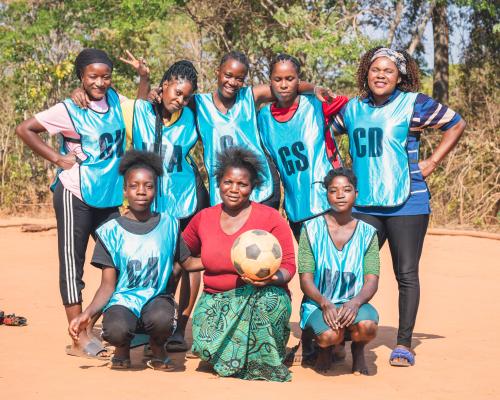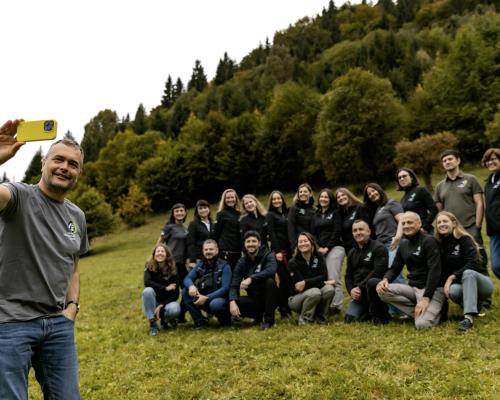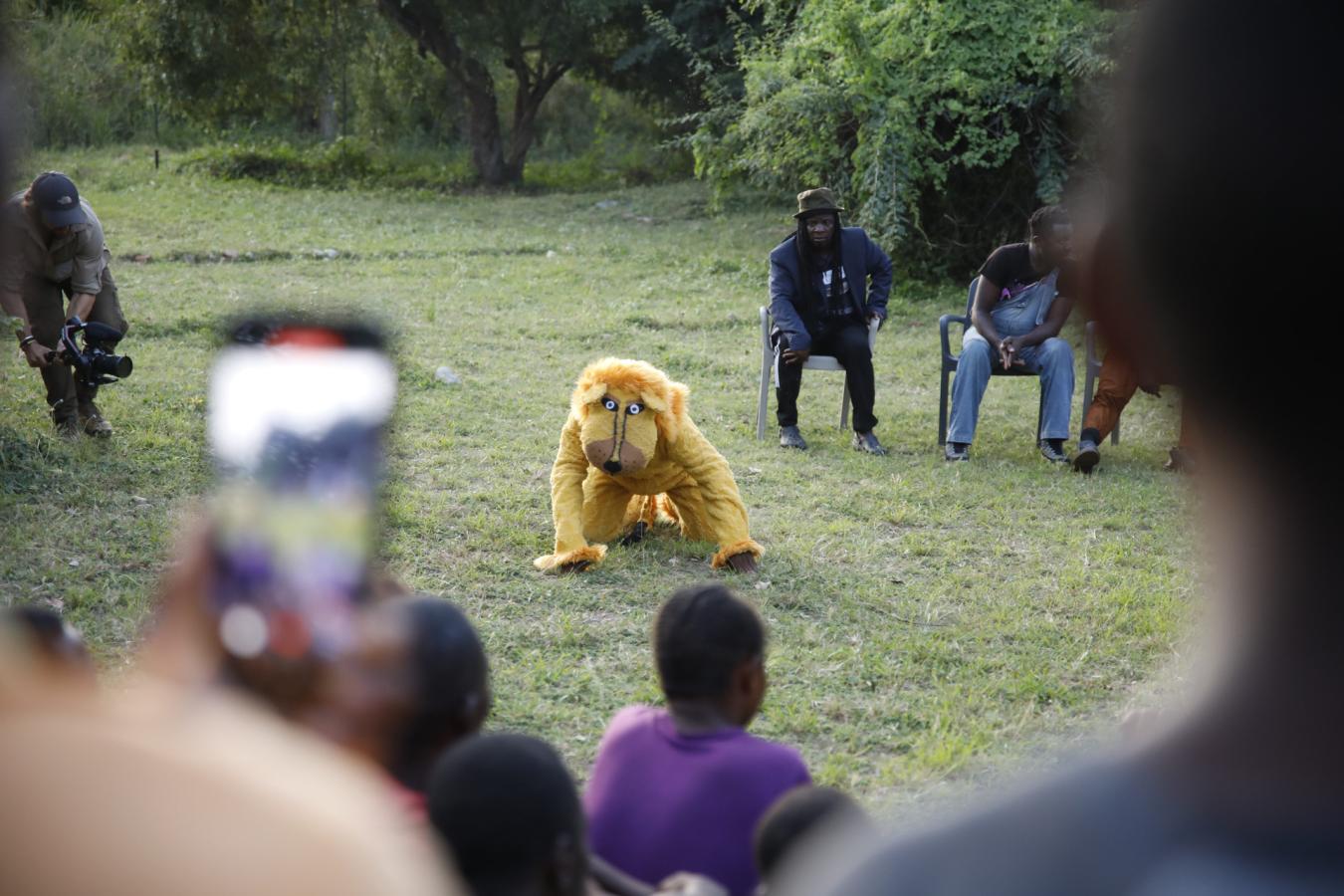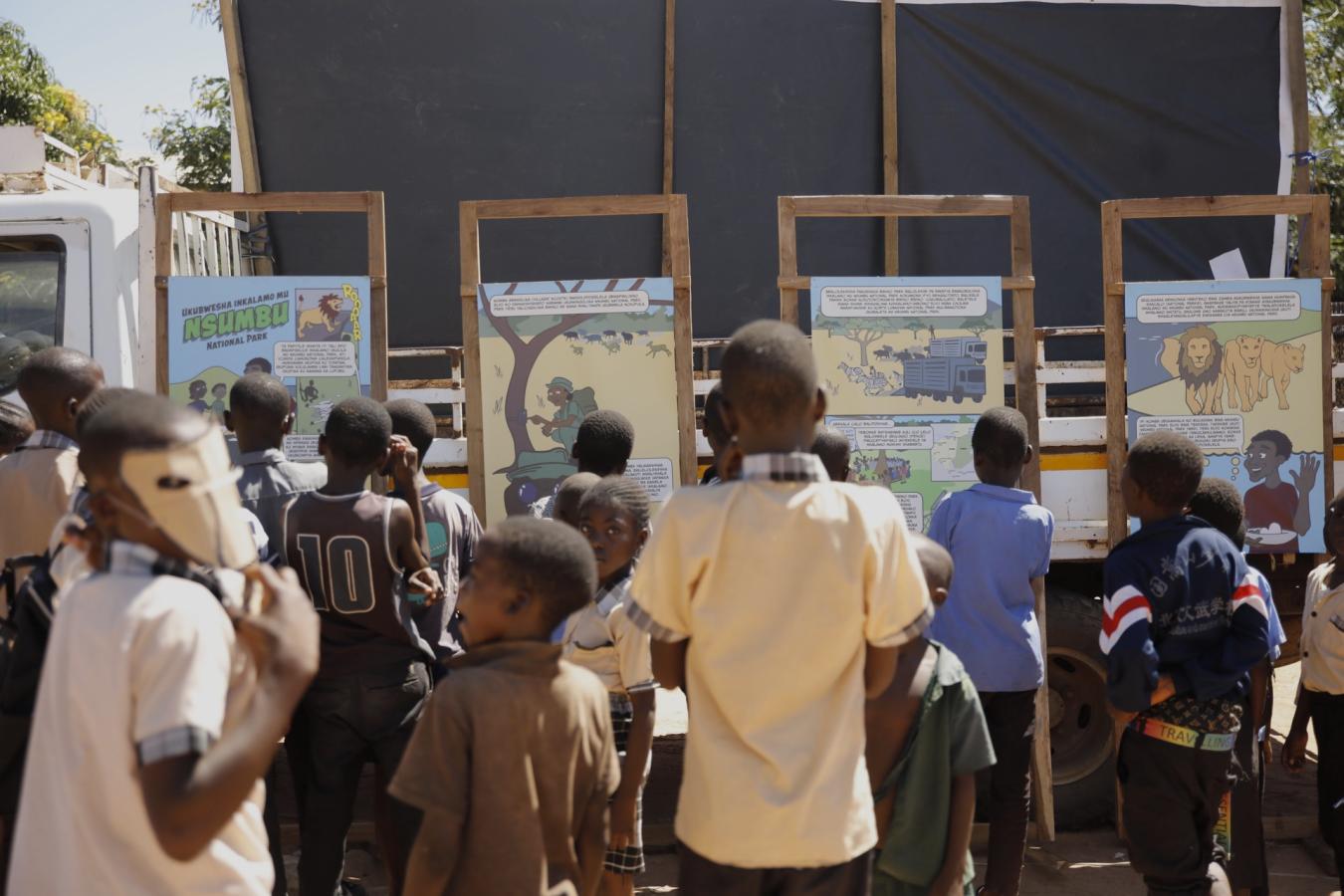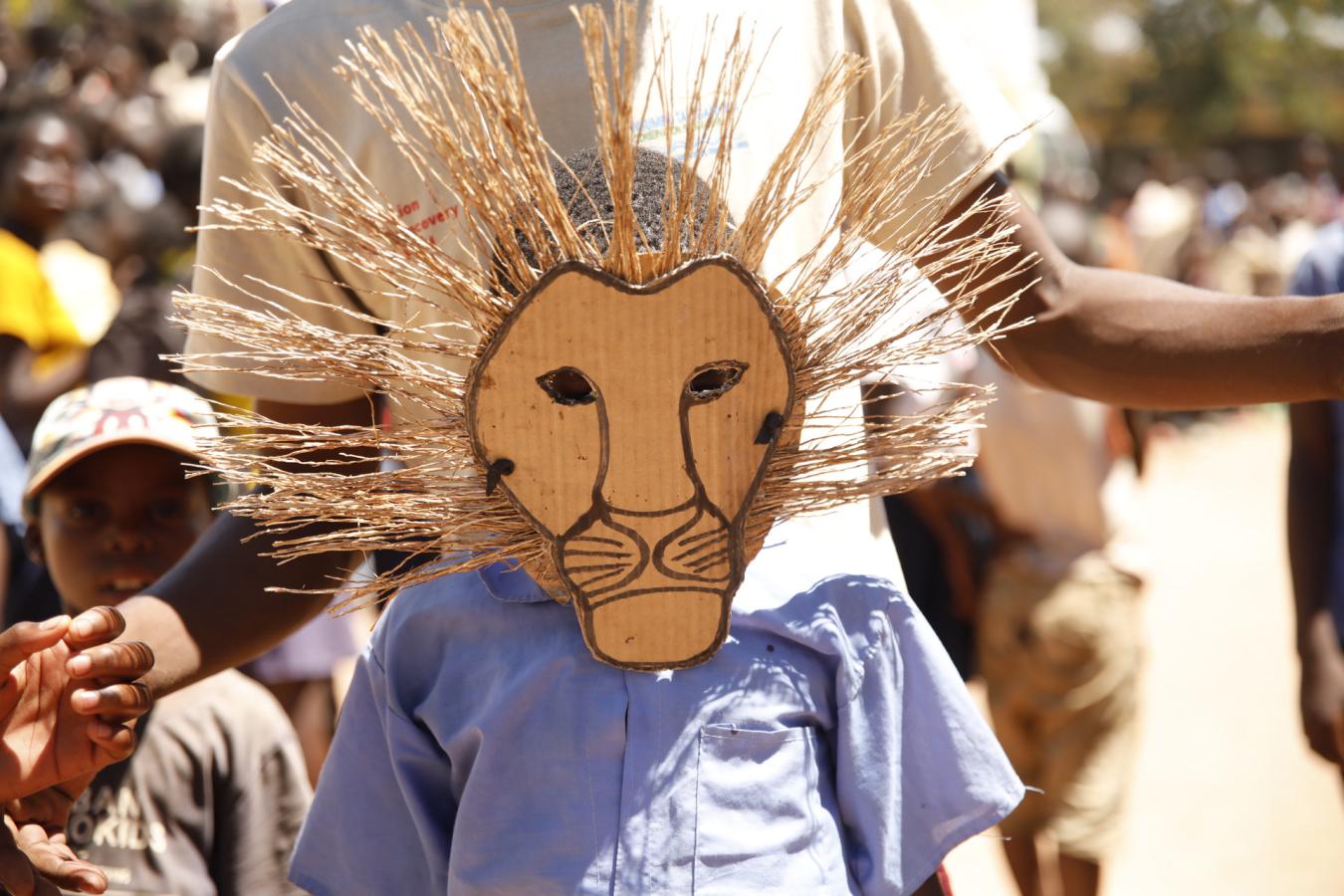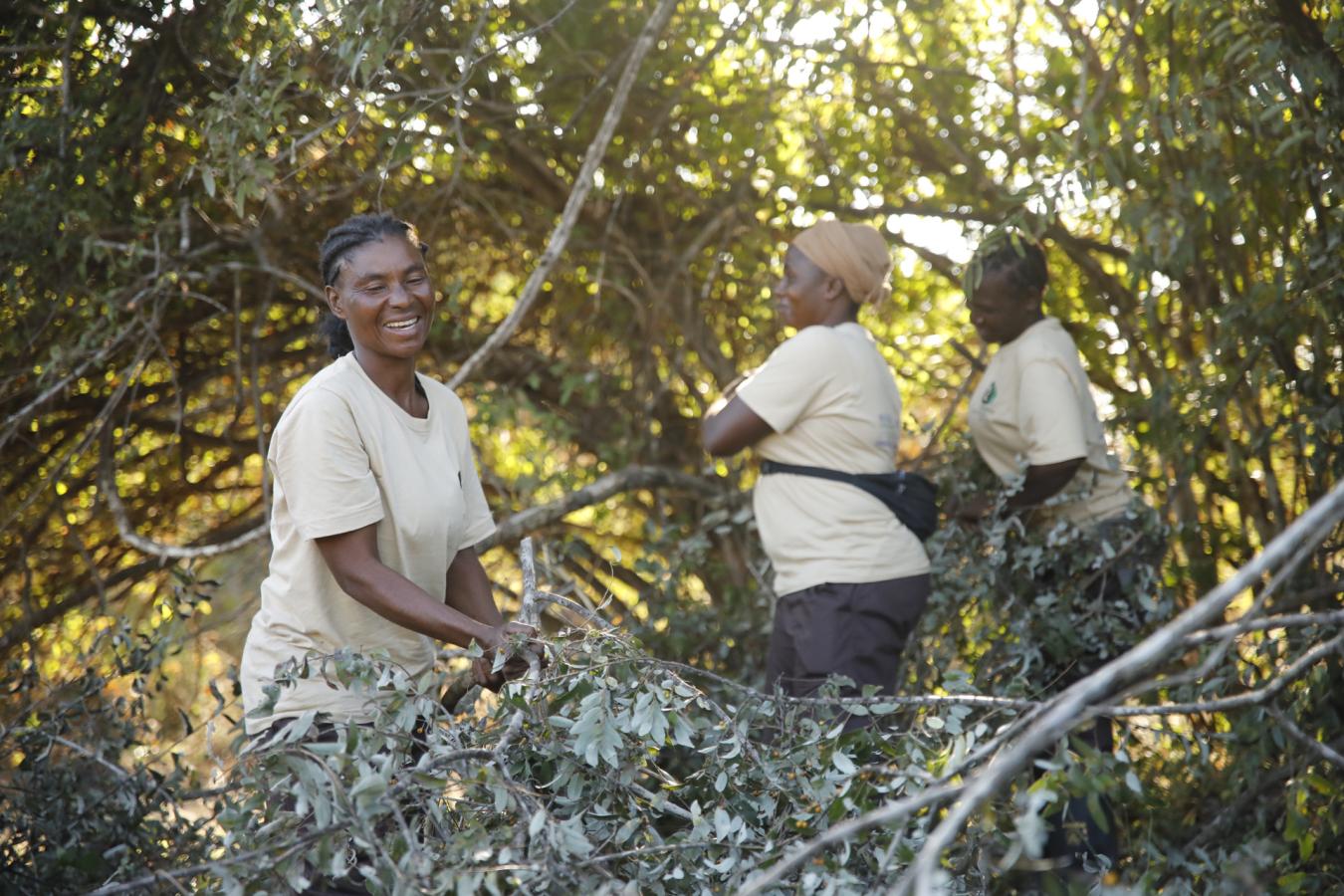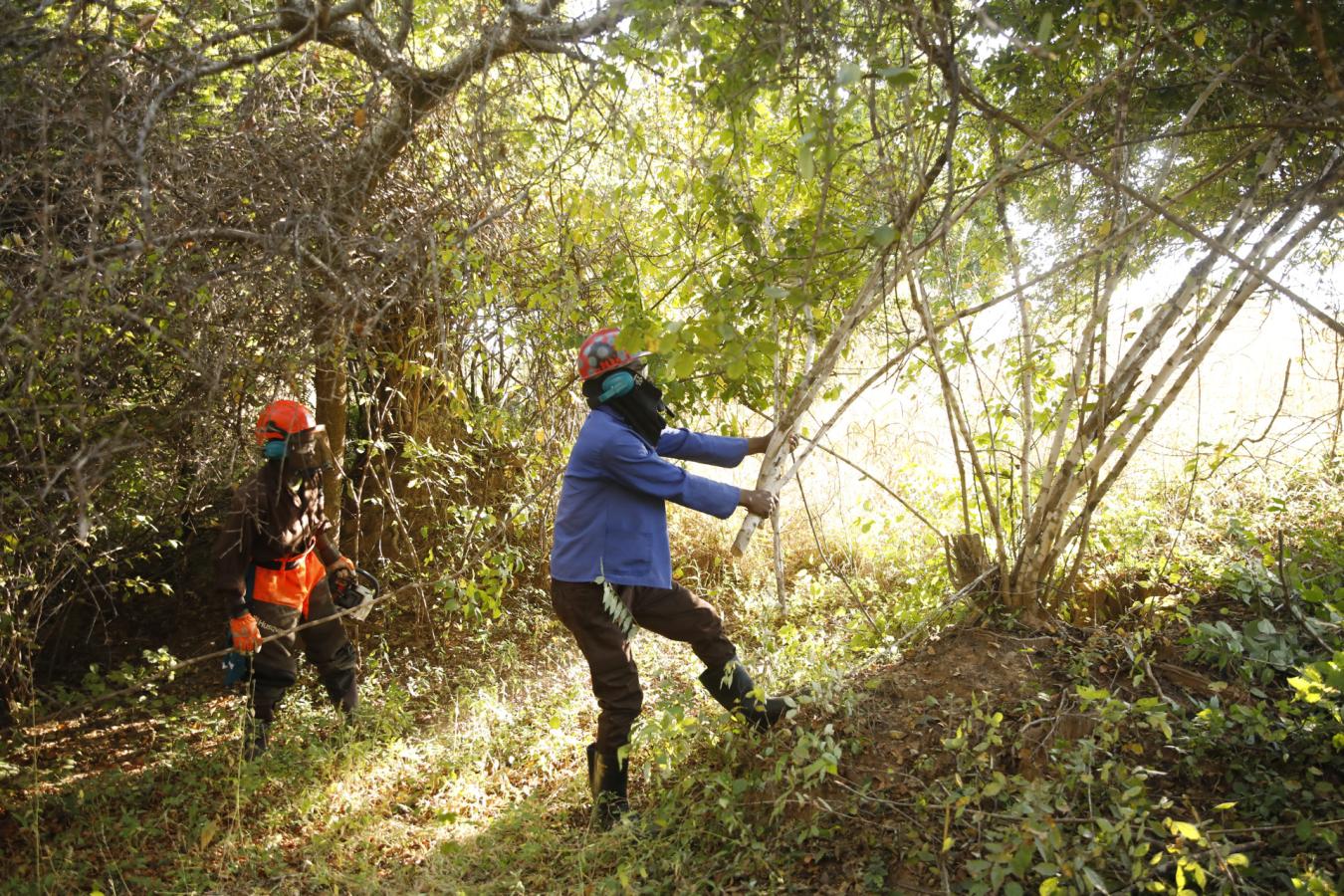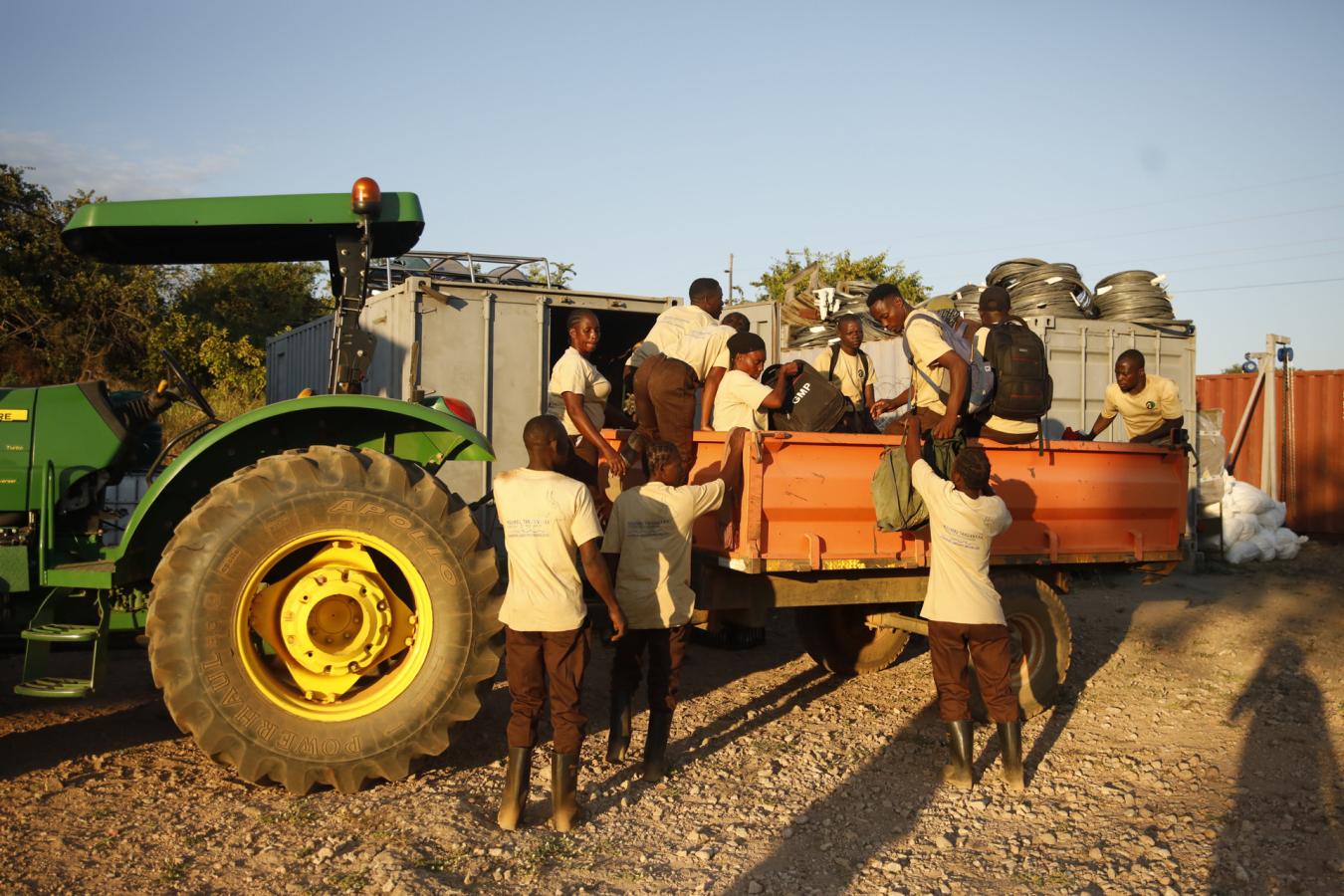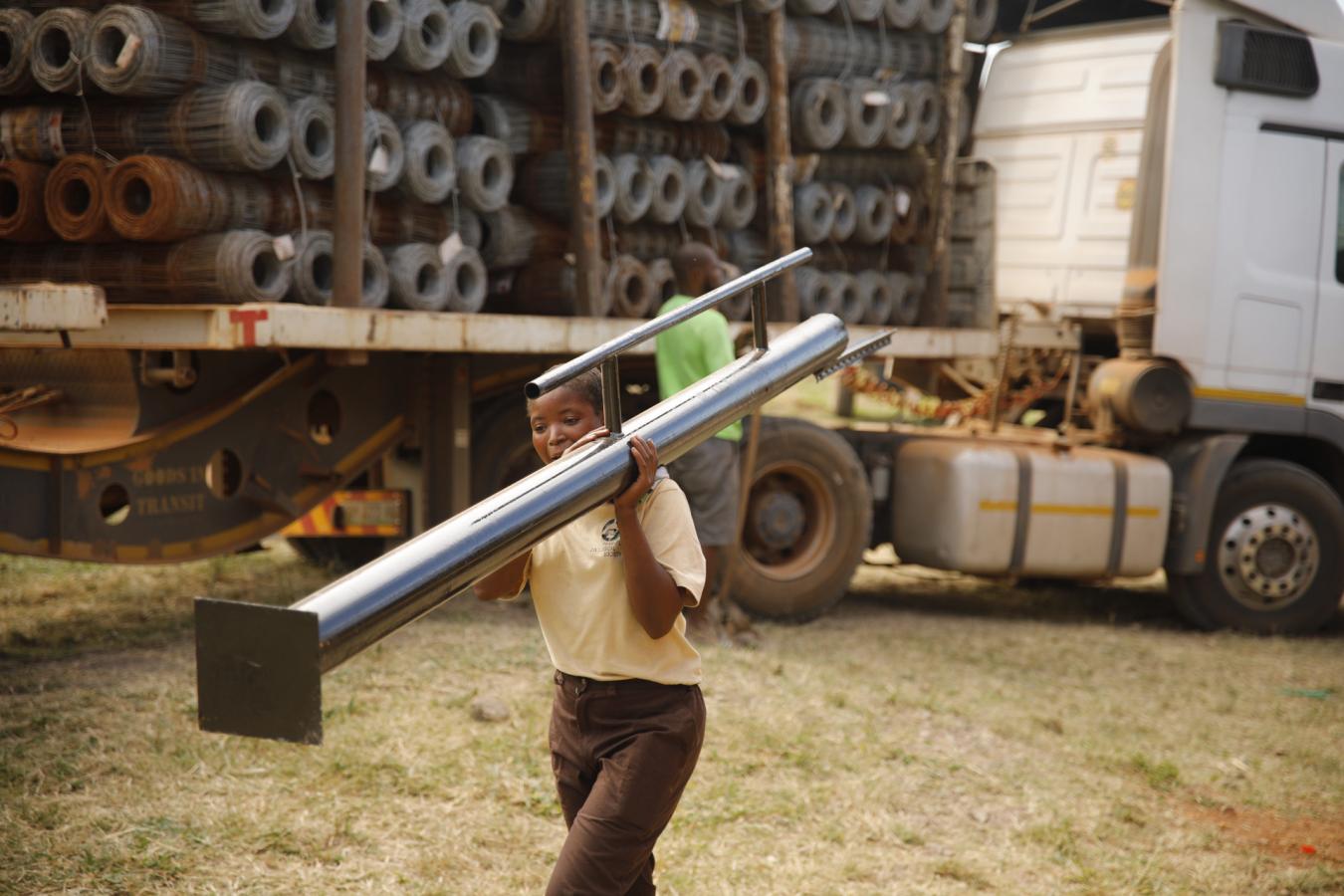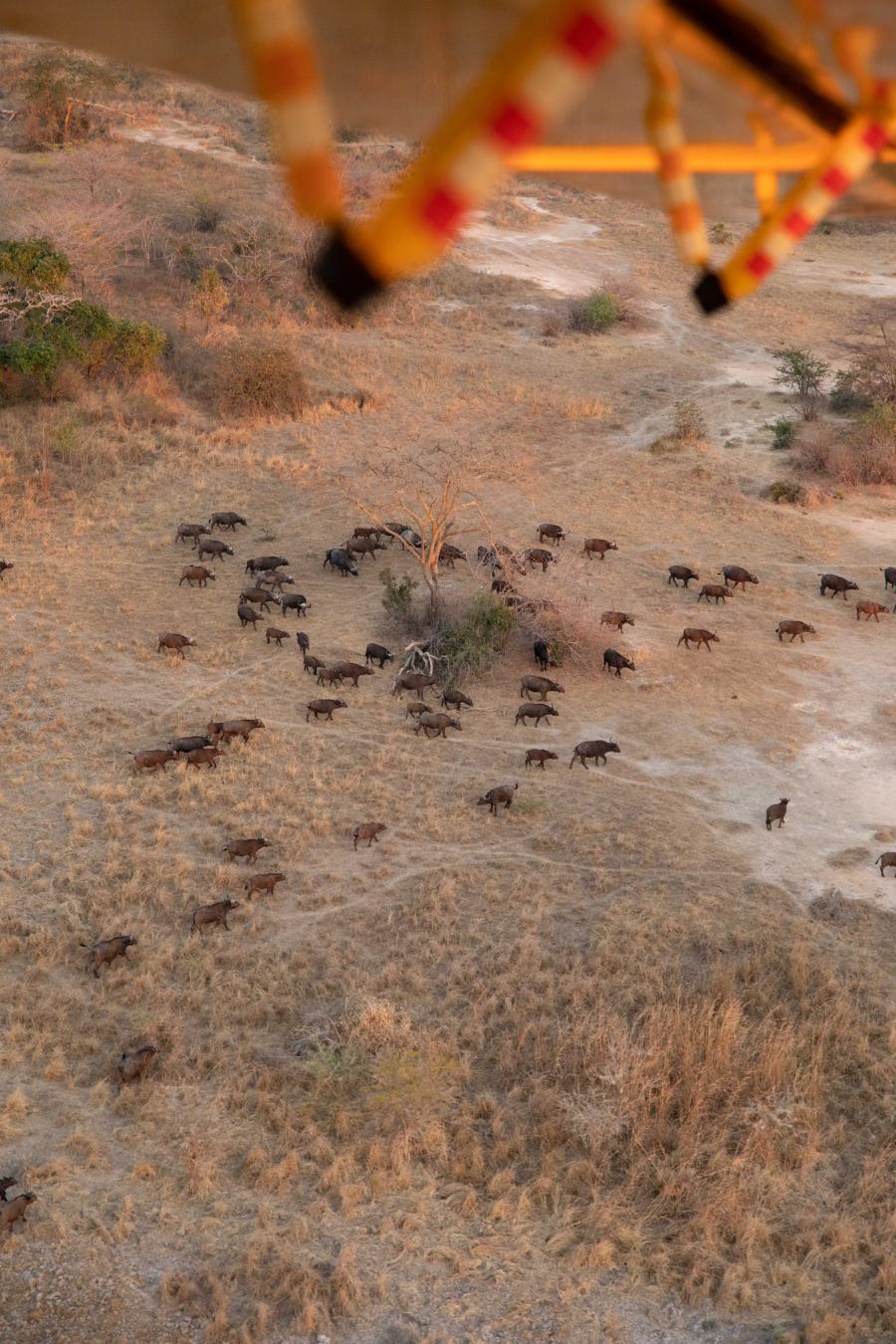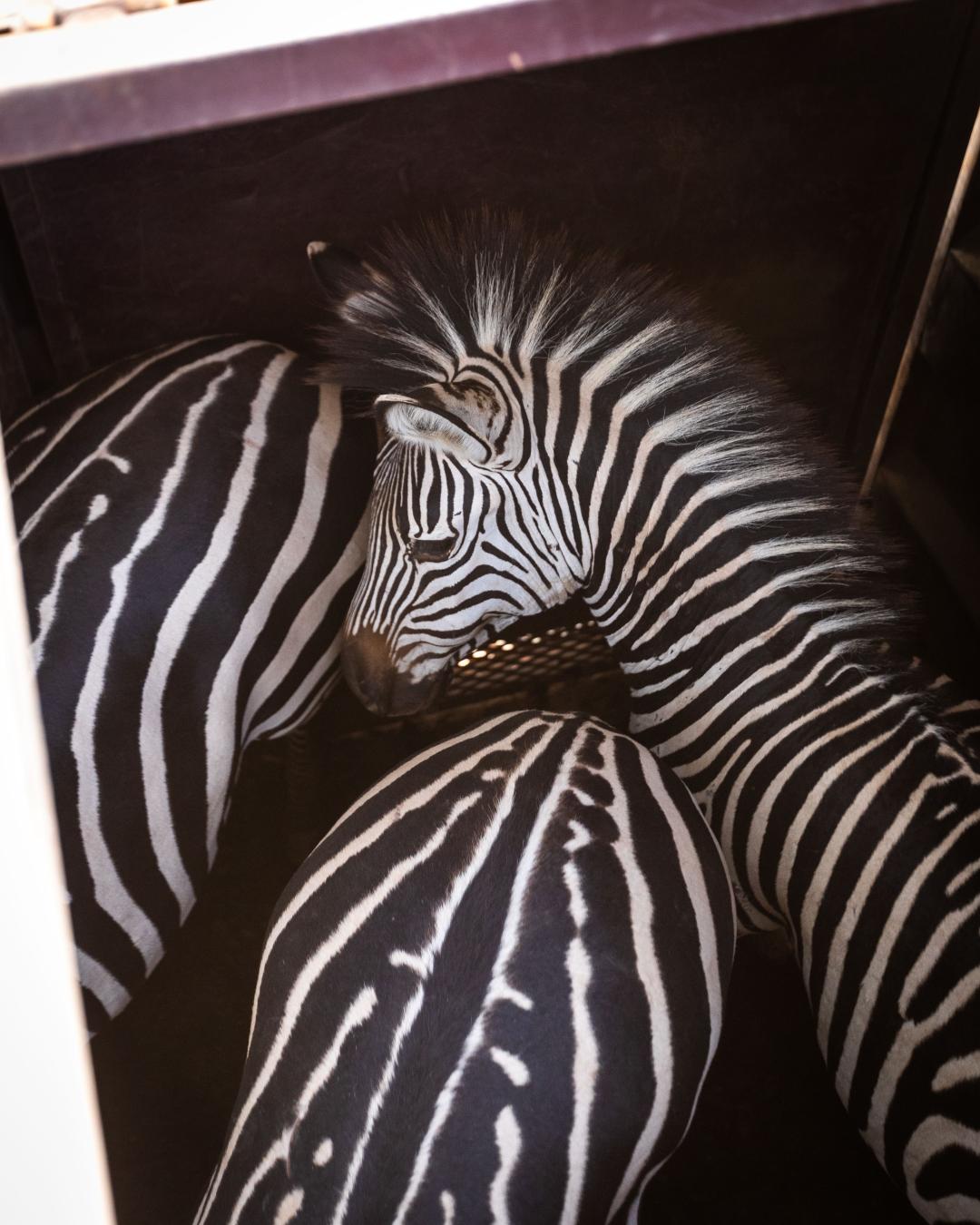Over a decade ago illegal hunting led to severe wildlife declines in Zambia’s Nsumbu National Park. Lions disappeared from the landscape, disrupting the ecological balance. Reintroducing lions is a critical part of restoring the ecosystem. Now, the Nsumbu Tanganyika Conservation Programme is working to return lions to Nsumbu National Park, beginning with strong community involvement.
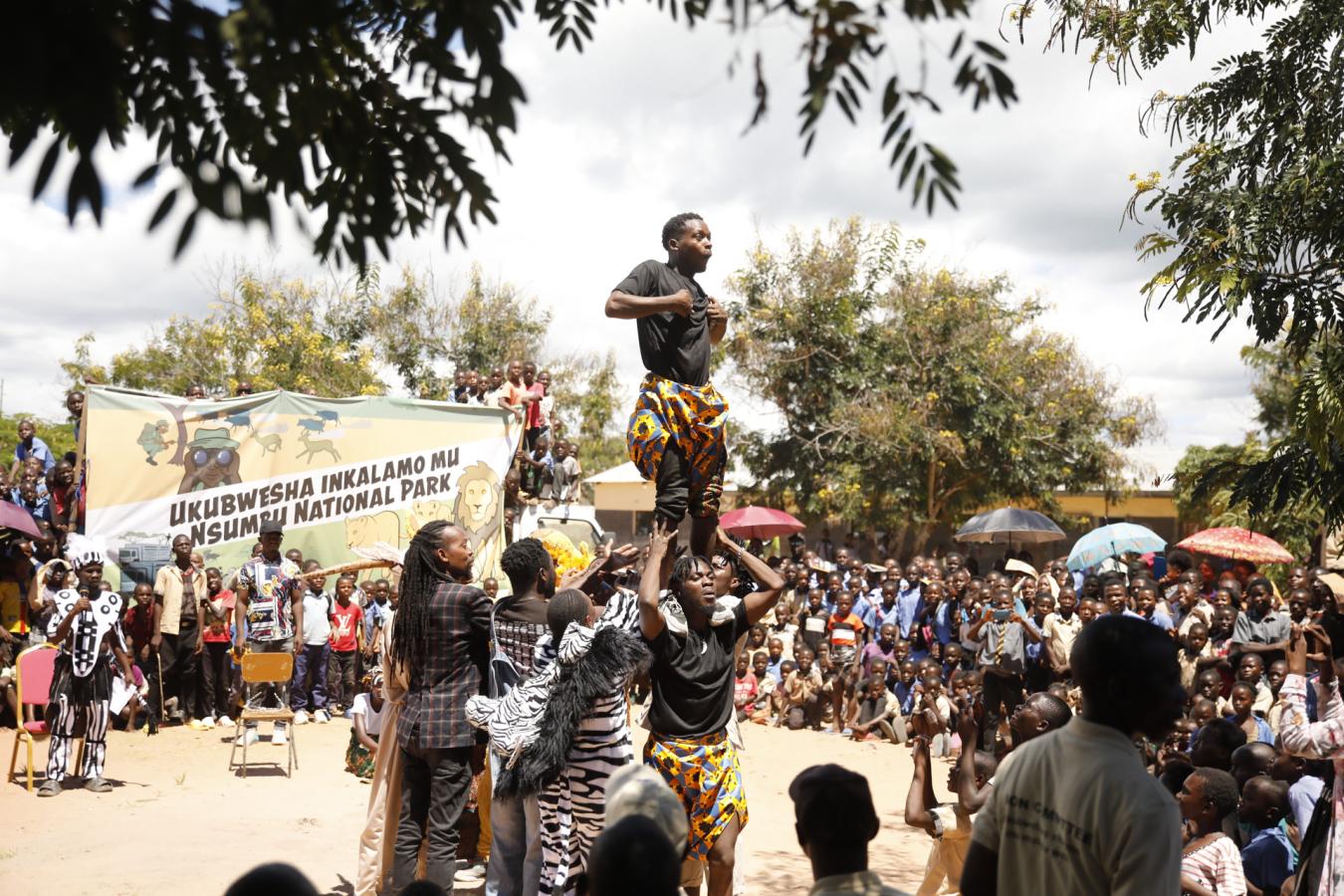
Building Pride: Fostering a lion-scape on the lakeshore
Drums echo across the school yard drawing a growing crowd – learners and community members forming a tight ring around the central stage. An acrobat leaps off his partner’s shoulders into a series of backflips, rousing a roar from the kids. Then the central theme of the show enters the stage, in full fluffy-lion dress, the actor pads towards the audience, shoulders moving with feline fluidity.
Theatre can be a powerful communication tool. Especially in rural towns like Nsumbu where opportunities to see performances like this one are rare. In April, the Nsumbu Tanganyika Conservation Programme engaged the Lusaka-based Barefeet Theatre to travel the 1200 kilometres north to Nsumbu National Park. Their mission was two-fold: to give a performance, carefully curated to answer questions that have frequently arisen about lions during community engagements. Secondly, these national experts – a vibrant mix of performers, musicians, acrobats, actors, and directors – also spent their days on site mentoring and training Nsumbu’s own EYEDO drama group to build their capacity to share conservation messages in their community.
After intense days of practice, the joint Barefeet-EYEDO team took to the road: loudspeaker blaring and a banner stretching across the truck showing a maned lion and two lionesses walking along the lakeshore alongside the Bemba slogan ‘Ukubwesha inkalamo mu Nsumbu National Park’ announcing the return of the big cats to the ecosystem. This ‘Lion Roadshow’, forms part of a larger community sensitisation programme that has been rolled out across the landscape – with support from the Wildlife Conservation Network’s Lion Recovery Fund. These sensitization engagements aim to ensure that a platform for dialogue is created, allowing community members to raise their concerns – for solutions to be collectively developed, and for ownership and custodianship to be fostered.
Shows took place in Nsumbu, Mutundu and the District capital, Nsama, before Barefeet headed home, confidently leaving their mentees to continue the show for the remaining communities in Nsama Chiefdom. Students from local schools also had an opportunity to perform poetry and drama developed as part of the NTCP conservation education work.
A locally led Lion Committee, established in 2022, answered questions from the crowd and gathered feedback on attitudes and perceptions towards the return of lions to their land. Additionally, to build their knowledge of lions and coexistence with the species, the committee took part in an exchange visit to Mfuwe town and South Luangwa National Park, an integrated landscape with a healthy large carnivore population, where they observed lions, gained insights on lion ecology from the Zambian Carnivore Programme, and met with local communities to learn about protecting livestock and living safely with lions.
A comic book story about the return of lions to Nsumbu National Park, translated to Bemba and shared with local communities and students to share the integrated process that has been followed to bring back the big cats.
Lions have cultural significance in this landscape. The surrounding area is also the cultural wellspring of the Tabwa people, whose Royal Family identifies as the “Clan of the Lions” — or “Abashimba”. Despite the significance of the species in the area, reintroductions remain complex, especially those involving predators. Many community members living around Nsumbu National Park are not used to living with wildlife after decades of intense poaching led to an extended absence of significant populations, and the complete disappearance of some species. The last recorded lion sighting in Nsumbu National Park was in 2017. An intensive camera trap survey conducted soon after confirmed their absence from the ecosystem. Even this short gap allowed enough time for people to grow used to life without the thought of large carnivores around, and for stories to grow and evolve about the realities of living with lions.
NTCP is collaborating with the Zambia-based production company, the Rusty Mokoro, to tell the full story of what it takes to be bring back the apex predator to a recovering landscape. The full documentary, to be released in 2025 after the reintroduction has been completed, will explore the complexities of this substantial task, and whether the local community will truly welcome Africa’s top predator back into their homeland.
Strong community involvement, dialogue and ownership from the outset forms the building blocks of successful human-wildlife coexistence. During various engagements a request for a fence along part of the park boundary repeatedly arose. In answer to this appeal from the local communities, funds were raised and the necessary planning permissions obtained to build a 15-kilometre partial boundary fence along a densely populated edge of the park where the majority of the area’s Human Wildlife Conflicts are currently registered. Running south-westwards from the Lake Tanganyika shoreline, this fence will not cut off wildlife connectivity to the wider landscape but will protect the lives and livelihoods of people living along the park boundary. Construction is now underway, with an added benefit of providing much needed employment opportunities for women and men from the area – the NTCP sought to specifically employ people negatively impacted by Human Wildlife Conflict.
Returning lions to Nsumbu is ecologically essential. The reintroduction of three lions from North Luangwa National Park to Nsumbu National Park is planned for the second half of 2024. Nsumbu National Park is committed to following internationally defined best practice in the planning and implementation of species reintroductions. A committee of experts was established in 2023 that includes representation from DNPW’s veterinary and ecology departments, Zambia Carnivore Programme, and community representation from the Nsama Chiefdom and Community Resource Board. This platform aims to ensure that lion reintroduction plans have secured the buy in from relevant stakeholders and considered the impacts of different outcomes. The integrated approach to lion recovery, and the early stages in planning for rhino, have been lauded as the most comprehensive in Zambia and set the gold standard for fully inclusive recovery efforts.
The Nsumbu lion reintroduction contributes towards Zambia’s 8th National Development Plan, in which the Government pledges to support the revamping of the tourism sector in the Northern circuit. Nsumbu National Park has seen a transformation over the past decade. With the increased protection provided through the Nsumbu Tanganyika Conservation Programme, recovering wildlife populations are now ranging further beyond the 2026 km2 Nsumbu National Park – a sure sign of effectiveness. Now, the return of the apex predator is a vital next step in recovering the landscape and natural functioning of the ecosystem.
The Nsumbu Tanganyika Conservation Programme (NTCP) is a long-term partnership between the Frankfurt Zoological Society and Zambia’s Department of National Parks and Wildlife. The NTCP is a field-based programme, working to secure the integrity of the Nsumbu-Tanganyika- Mweru ecosystem for the social and economic benefit of present and future generations, with our mission: conserving landscapes, enriching lives.






